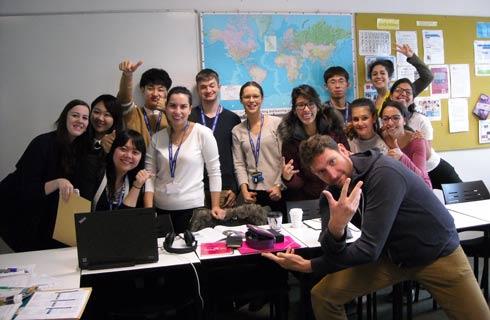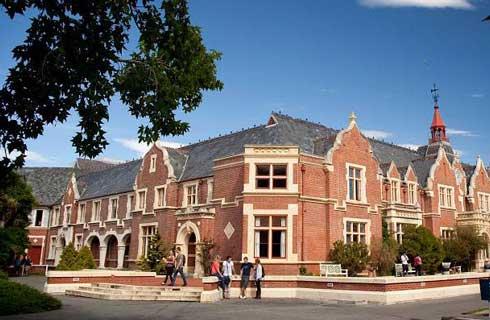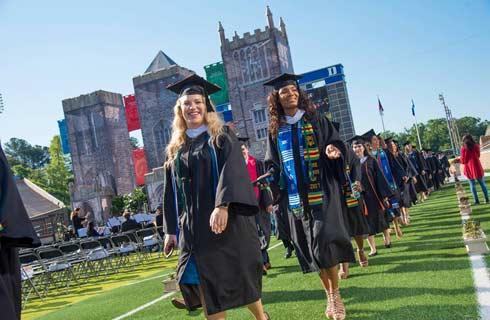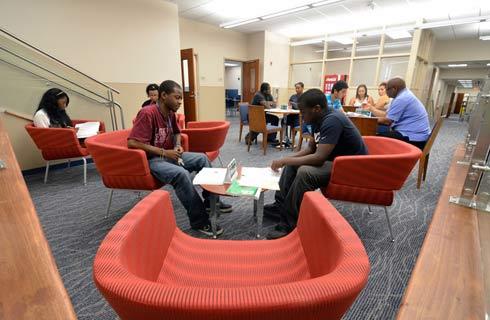Master of Science in Chemistry - Nanotechnology

学历文凭
Masters Degree

专业院系
Department of Chemistry

开学时间

课程时长

课程学费

国际学生入学条件
IDP—雅思考试联合主办方

雅思考试总分
7.0
- 雅思总分:7
- 托福网考总分:90
- 托福笔试总分:160
- 其他语言考试:PTE (Academic) - 63 (writing 65, speaking 65)
CRICOS代码:
申请截止日期: 请与IDP联系 以获取详细信息。
课程简介
相关申请
 预科
预科 奖学金
奖学金 实习机会
实习机会 在校学习
在校学习 跨境学习
跨境学习 校园授课-线上开始
校园授课-线上开始 在线/远程学习
在线/远程学习
开学时间&学费
学费信息仅供参考,请与IDP联系以获取详细信息
| 开学时间 | 时长 | 学费 | 地点 |
|---|
学校排名

世界排名201
数据源:
泰晤士高等教育世界大学排名
关于滑铁卢大学

滑铁卢大学是加拿大滑铁卢市的一家著名大学,是一所以研究为主的中等大小的公立大学,创建于1957年。以数学、计算机科学、工程学而闻名。该校位于安大略省的西南面的滑铁卢市,占地面积约为1000英亩。滑铁卢大学成立至今,仅数十年便跻身加拿大名校之列,是加拿大发展最快的学校。2011年到2013年,该校一直稳居麦克林杂志评选的加拿大综合性大学排名的第三位,是北美地区最优大学之一,其数学,计算机科学和工程学科教学水平居世界前列。特别是做为北美地区第一个经认可建立数学系的大学,拥有世界上最大的数学系以及世界上最大的合作办学项目。学校共授予100多个本科学位专业,28种硕士及博士学位专业,学校的代表队曾多次获得ACM 国际大学生程序设计竞赛的冠军。
本校相关课程

系统设计工程哲学博士
学历文凭
Ph.D.
开学日期
课程费用总额


系统设计工程工程学硕士
学历文凭
Masters Degree
开学日期
课程费用总额


社会学文学硕士[仅课程]
学历文凭
Masters Degree
开学日期
课程费用总额


Doctor of Philosophy in Religious Studies
学历文凭
Ph.D.
开学日期
课程费用总额


运动机能学博士-工作与健康
学历文凭
Ph.D.
开学日期
课程费用总额


娱乐与休闲研究哲学博士
学历文凭
Ph.D.
开学日期
课程费用总额

其他相关课程

机械工程理学学士-微型/纳米工程
 犹他大学 - Shorelight
犹他大学 - Shorelight学历文凭
Bachelor Degree
开学日期
课程费用总额


Bachelor of Science in Chemistry - Nanotechnology
 圣弗朗西斯大学
圣弗朗西斯大学学历文凭
Bachelor Degree
开学日期
课程费用总额


Doctor of Philosophy in Chemistry- Nanoscience and Materials
 明尼苏达大学双城分校
明尼苏达大学双城分校学历文凭
Ph.D.
开学日期
课程费用总额


纳米技术理学硕士
 中佛罗里达大学
中佛罗里达大学泰晤士高等教育世界大学排名:471
学历文凭
Masters Degree
开学日期
课程费用总额


Doctor of Philosophy in Electrical and Computer Engineering - Solid State Devices and Nanotechnology
 密歇根大学安娜堡分校
密歇根大学安娜堡分校学历文凭
Ph.D.
开学日期
课程费用总额


Master of Science in Engineering in Chemical Engineering - Nanotechnology
 密歇根大学安娜堡分校
密歇根大学安娜堡分校学历文凭
Masters Degree
开学日期
课程费用总额










 加拿大
加拿大